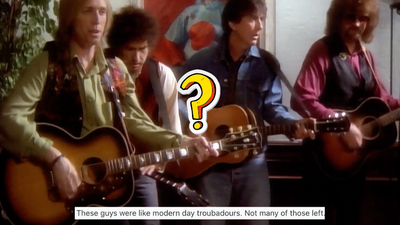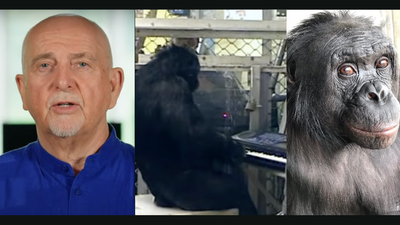How words drift toward the famous, regardless of the facts.
That Mark Twain was something else, wasn't he? He said so many memorable things, like "If you don't like the weather in New England, just wait a few minutes" and "Golf is a good walk spoiled." What a writer, what a guy.
Unfortunately-even though Twain is the great American humorist-he didn't say either of those things. Twain is what scholar Fred Shapiro calls a "quote magnet," someone who receives credit for sayings and proverbs that never passed their lips or pens. Also called "Churchillian drift" by Nigel Rees, quote magnetism is a common phenomenon that infects everything from student papers to political speeches, and respected books of quotations aren't immune. As quote experts Rees and Shapiro have shown, "So-and-so said" are some of the least trustworthy words in the language.
Rees-who founded and hosts the U.K.'s "Quote...Unquote" program and has written books such as Brewer's Famous Quotations and More Tea, Vicar?-came up with "Churchillian drift" to "describe the process whereby the actual originator of a quotation is often elbowed to one side and replaced by someone more famous. So to Churchill or Napoleon would be ascribed what a lesser-known political figure actually said." By email, Rees said, "I coined the phrase in 1983 when specifically writing about the remark ‘Donny Osmond has Van Gogh's ear for music' which had been attributed to Orson Welles, whereas it was said by Billy Wilder about an actor called Cliff Osmond. Donny was more famous than Cliff and Welles more famous (and fatter) than Wilder!" So that quote drifted away from the shores of accuracy in two directions.
I interviewed Fred Shapiro, librarian and lecturer at Yale Law School and editor of The Yale Book of Quotations by phone, and he said that while Churchill may be a top quote magnet in England, there's no doubt the top American is Mark Twain. For example, Shapiro found the New England weather quote in print 10 years before the earliest attribution to Twain; the golf quote appeared 35 years before. Shapiro advises skepticism regarding all Twain-isms: "If you just assume that any quote from Twain is apocryphal, you won't be wrong very often."
In America, Shapiro said that "people associated with folksiness" such as Twain, Benjamin Franklin, Abraham Lincoln, and Yogi Berra are the big quote magnets. Another folksy fellow is George W. Bush, who often gets credit for the supposed Bushism "strategery," which was actually coined by Bush impersonator Will Ferrell on Saturday Night Live. Similarly, the Sarah Palin one-liner "I can see Russia from my house" is a Tiny Fey-ism, not a Palinism. Shapiro believes that Palin could be the next big quote magnet, and that "stupid quotes in the future will get pinned on her."
There are many ways a quotation can be disapproved, as Shapiro and his research assistants learned during the six years it took to compile the Yale Book of Quotations. If the newspaper databasesdon't yield anything from the alleged quotee's time, that's a red flag. Sometimes biographical facts disprove a quotation. One purported Twain saying-"When I was a boy of fourteen, my father was so ignorant I could hardly stand to have the old man around. But when I got to be twenty-one, I was astonished at how much he had learned in seven years"-is disproved by the fact that Twain's dad died when the author was eleven. Other quotations raise suspicions for being too modern-sounding, or just out of character for the person saying them, such as religious quotes attributed to Albert Einstein.
These goofs happen both consciously and unconsciously. Shapiro said, "There's a tendency to improve quotes." That improvement works in a few ways: If I cite Mark Twain instead of my cousin Billy, the quote is improved and my own case bolstered. Wording gets revised, too. For example, Shakespeare's "Alas, poor Yorick, I knew him" is oft-misquoted as "Alas, poor Yorick, I knew him well," which Shapiro notes is "better than the original." Shapiro says that quotes are made more concise and memorable, and archaic words may be replaced.
Also, once people hear something is true, they tend to believe it, and the folk etymology of words (including eggcorning) is very similar to how quotations get mangled and massaged over time. Shapiro said, "I have an uncle who insists the expression ‘ciao' meaning goodbye comes from ‘chow' meaning food, because he heard this on the radio once. And it's totally untrue. I can tell this to my uncle till he's blue in the face and he's never going to believe it because he heard it on the radio." More blame for the spread of nonsense goes to prescriptive, loud, and marginally informed English teachers, who have a way of planting the seeds of language misinformation deep in young minds. As Shapiro put it, "If your seventh grade English teacher said it, you may go your whole life believing it."
Unfortunately for us all, even highly respected reference works like Bartlett's repeat erroneous attributions-"They don't actually do much research," Shapiro said, adding that he found hundreds of bogus quotations in so-called authoritative quote books. If you want to help sniff out incorrect quotations, subscribe to Rees' "Quote...Unquote" newsletter or join the Project Wombat list, which has helped Shapiro in the past. And next time you hear "Mark Twain said this" or "Sarah Palin said that," you might want to take such claims with an entire pillar of salt.













